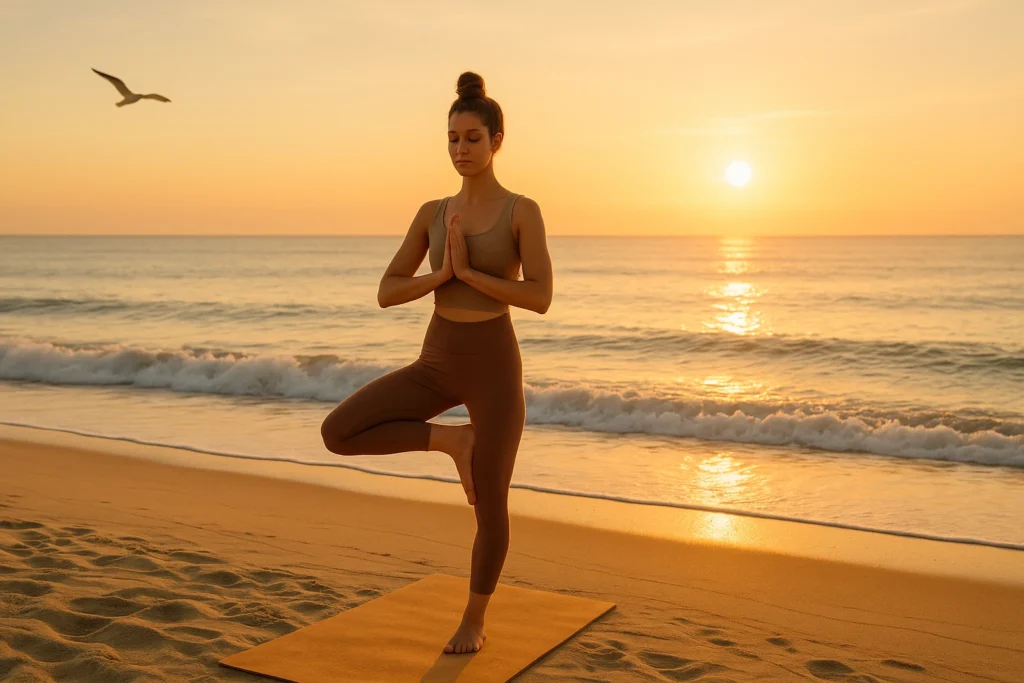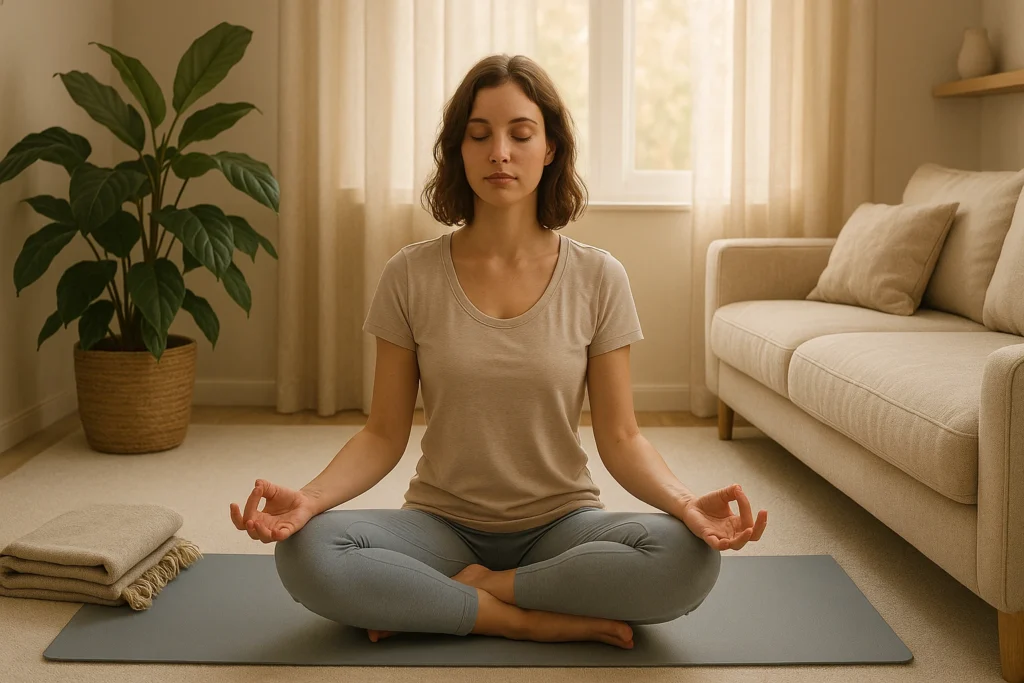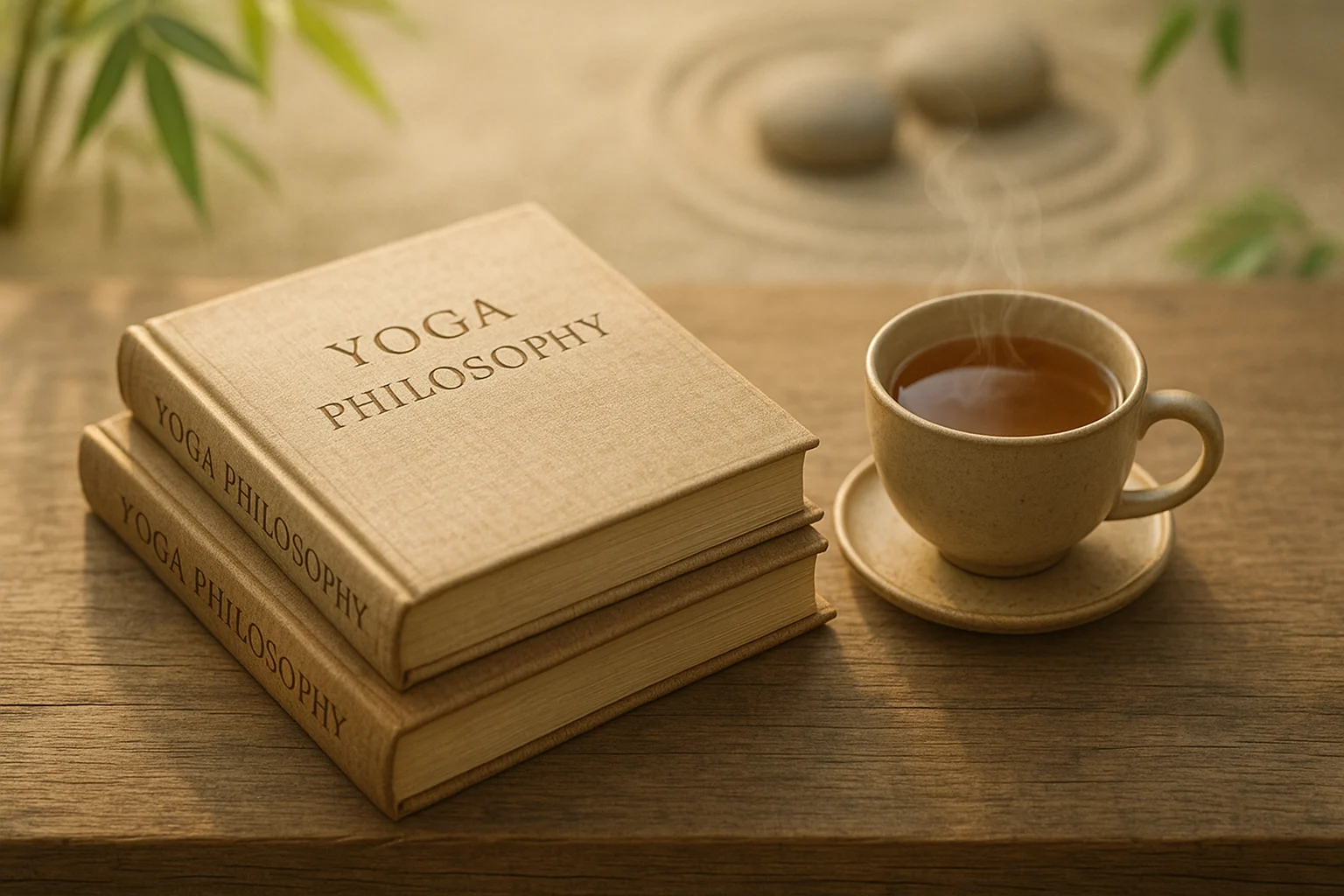
Feeling stressed? Yoga philosophy books for beginners can unlock your inner wisdom—starting today. You’ve likely felt yoga’s magic: looser shoulders, a quieter mind. But it’s more than poses; it’s a way to navigate life’s chaos with clarity. These beginner picks spark curiosity with every page. For a deeper dive, explore our comprehensive yoga philosophy guide.
Track Your Yoga Reading Now!This page contains paid/affiliate links. As an Amazon Associate we earn from qualifying purchases, and we may earn commissions from other partners—at no extra cost to you. Links marked with ‘#ad’ are affiliate links, meaning we may earn a commission at no extra cost to you. Learn more.
Table of Contents
Why Read Yoga Philosophy (as a Beginner)?
Think of yoga like a home. Asanas are the frame that keeps everything standing; philosophy is the warmth that makes it livable. I first came to yoga for a cranky back and—surprise—the calm crept into my day, too. That’s what nudged me toward the why behind the practice, especially the Yamas and Niyamas in Yoga.
Here’s what yoga philosophy brings to your everyday life: clarity, steadier moods, kinder choices, and a practice that actually sticks.
- Asana (Poses): The physical practice you know.
- Pranayama (Breathing): Controlling breath for calm.
- Dhyana (Meditation): Training your mind for clarity.
- Philosophy: Wisdom tying it together for a joyful life.
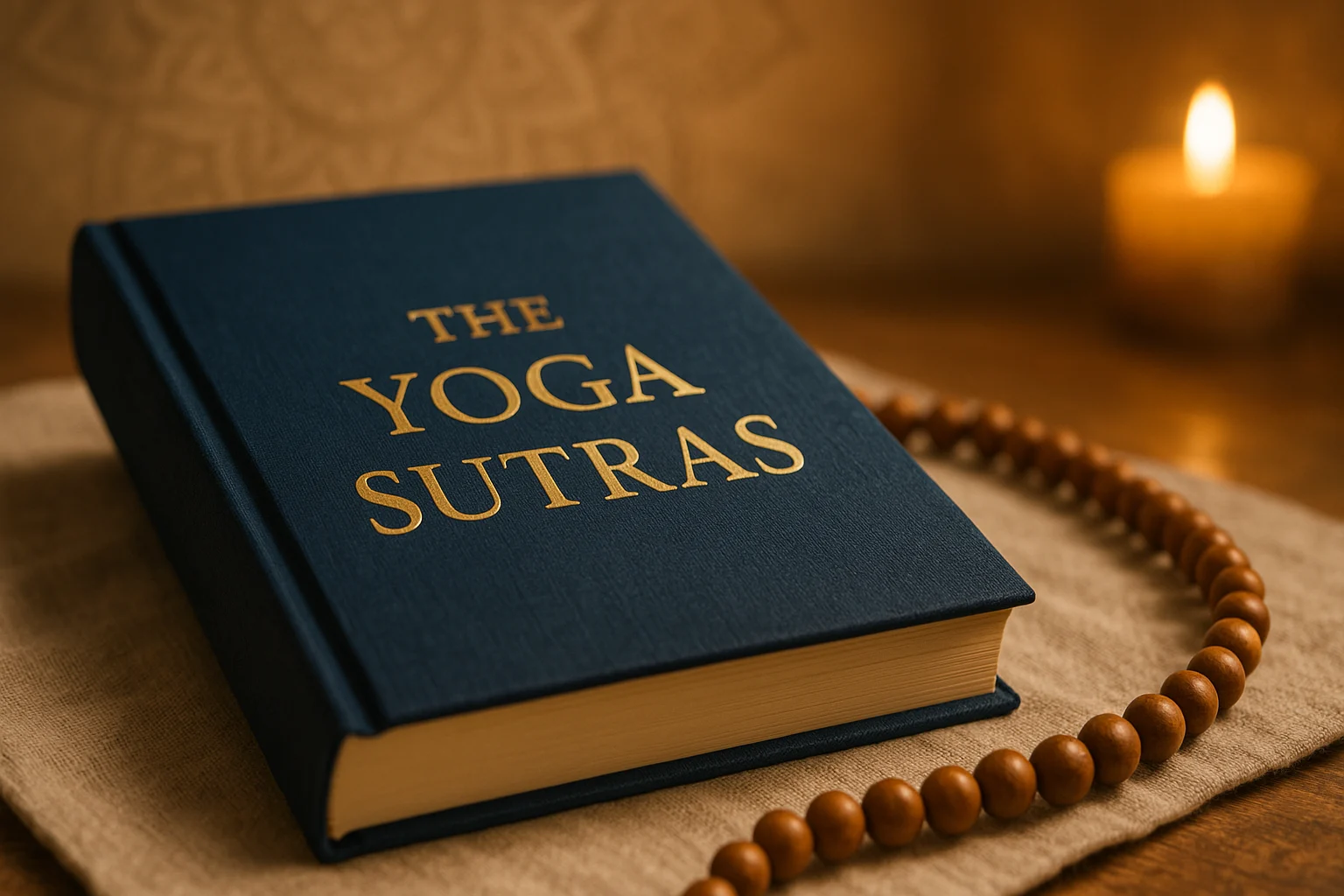
Top Yoga Philosophy Books for Beginners
Ready to choose your first read? These six approachable titles unpack big ideas without jargon—ideal if you want the “why” behind the practice. If you’re hunting for yoga books for newbies, start here.
1) The Yoga Sutras of Patanjali — Sri Swami Satchidananda
What it is: The Yoga Sutras, written by Patanjali 2,000 years ago, are yoga’s cornerstone. These short sayings map out the Eight Limbs of Yoga—a path to inner peace and self-awareness.
Why it’s great: Satchidananda’s notes are down-to-earth and practical. His mindfulness cues are the kind you can use in traffic or on a tough day.
Everyday connection: The Eight Limbs (think ahimsa, non-harming, and satya, truthfulness) act like a compass. Use them in small moments—hard conversations, sticky workdays—and the practice starts to reshape everything.
2) The Yamas & Niyamas — Deborah Adele
What it is: A very human, story-driven look at yoga’s ethics that’s easy to apply off the mat. It explores the Yamas (how we treat others) and Niyamas (how we care for ourselves).
Why it’s great: Adele’s style feels like modern self-help. Her examples—like practicing truthfulness in tough talks—make ethics doable. I also use mindfulness practices for stress relief to complement these teachings.
Everyday connection: Struggling with perfectionism? The Niyama of contentment (santosha) helps. I used it to let go of stress over a messy house, finding calm in the chaos.
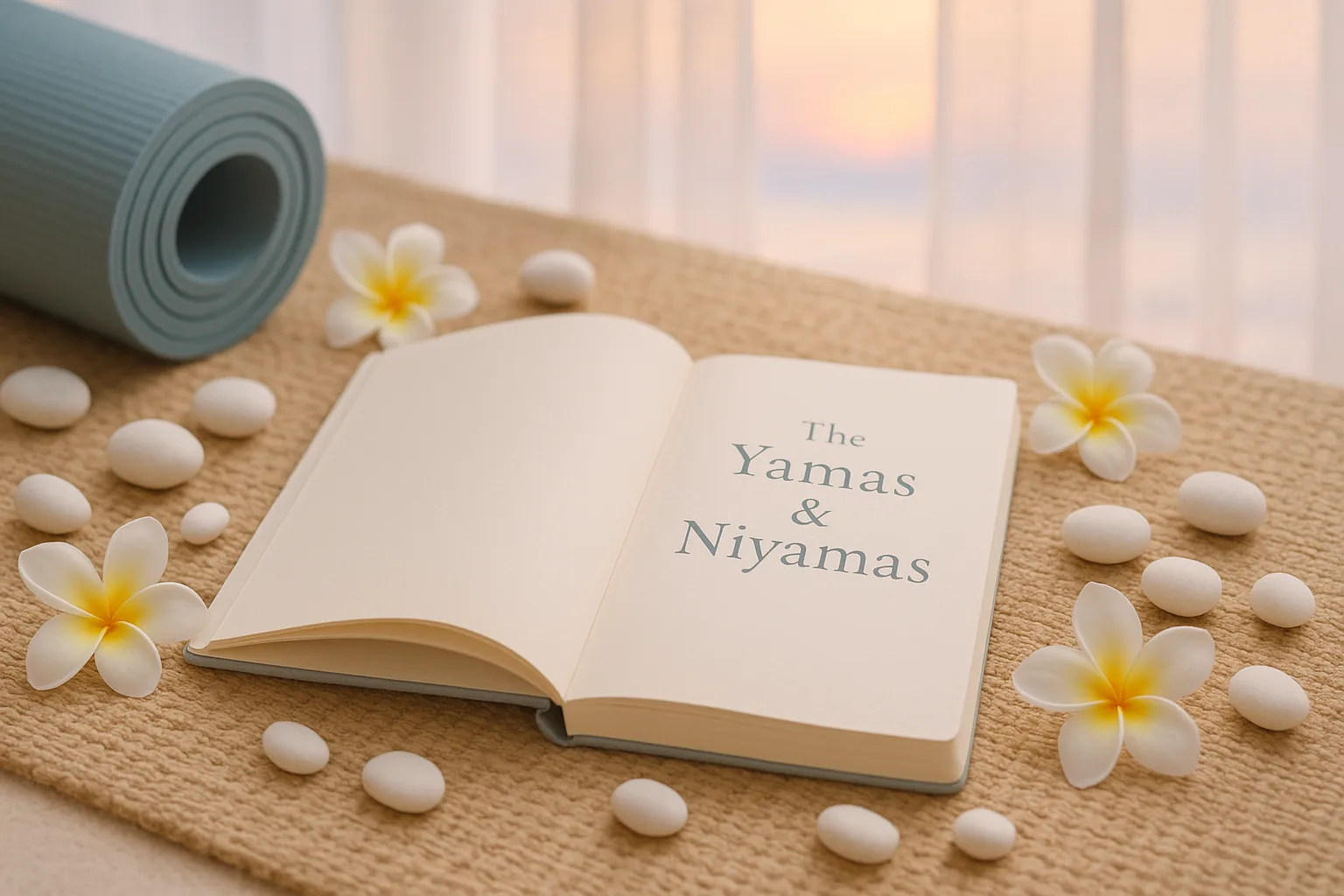
3) The Bhagavad Gita — Eknath Easwaran (translation)
What it is: The Bhagavad Gita is the best known of all the Indian scriptures, and Eknath Easwaran’s best-selling translation is reliable, readable, and profound. It opens on a battlefield as Arjuna turns to his guide, Sri Krishna, for answers to life’s biggest questions.
Why it’s great: Easwaran’s 55-page introduction sets the Gita in context and highlights its timeless relevance. Chapter introductions clarify key ideas, with notes and a glossary explaining Sanskrit terms. Easwaran—raised in India, trained in Sanskrit, and a gifted teacher—makes the Gita feel immediate and practical. I personally read this one and really liked it.
Everyday connection: The Gita’s guidance on acting without attachment to outcomes is powerful during career changes or tough decisions—steadies the mind, strengthens purpose.
4) Light on Life — B.K.S. Iyengar
What it is: Iyengar blends lifespan practice with plainspoken advice about body, breath, emotions, and meaning. It’s a book about living, not just posing.
Why it’s great: It reads like a seasoned teacher in your ear—firm, kind, specific. He shows how small, steady discipline opens space and freedom.
Everyday connection: Under stress, try his cues: shorten the breath, lengthen the exhale, and soften the jaw. Simple moves, real relief.
5) The Heart of Yoga — T.K.V. Desikachar
What it is: Desikachar, son of yoga pioneer Krishnamacharya, sees yoga as a personal journey. This book weaves poses, breath, meditation, and philosophy, including his take on the Sutras.
Why it’s great: His gentle approach tailors yoga to you. His breathing tips, like five breaths through the nose before emails, make philosophy practical.
Everyday connection: This book invites you to listen to your needs. I used its mindfulness to manage work stress, finding balance in busy days.
6) Meditations from the Mat — Rolf Gates
What it is: Rolf Gates offers 365 daily reflections tying yoga philosophy to life—gratitude, perseverance, and more.
Why it’s great: Its bite-sized format fits busy mornings. Gates’ grounded style feels like a daily pep talk, making big ideas relatable.
Everyday connection: A morning reflection sets a mindful tone. I used Gates’ gratitude practice to reframe a tough week, finding small joys.
How to Start Reading Yoga Philosophy (Beginner Yoga Philosophy Tips)
No need to be a scholar to enjoy these starter texts—perfect for your beginner yoga philosophy journey. Here’s how to make your reading meaningful:
Philosophy Yoga Reading: Quick Start
- Take It Slow: Read a few pages daily—no rush!
- Reflect: Jot down thoughts to connect ideas to your life.
- Discuss: Share with yoga friends or teachers for deeper insights. Consider exploring yoga teacher training programs for guided discussions.
- Savor, Don’t Speed: Revisit passages; it’s about exploration.
- Apply to Practice: Try ahimsa (non-harming) in poses or conversations.
- Embrace Questions: Don’t worry if ideas feel new—growth takes time.
For more tips to guide your philosophy yoga reading, explore Yoga Journal’s philosophy section.
Your Yoga Philosophy Reading Tracker
Ready to dive in? Click a book to reveal what I love about it and grab your format.
Discover Yoga Books for Newbies — Your Wisdom Path
Tap a book card. The panel will show my favorite bits + quick buy links.
-
The Yoga Sutras of Patanjali by Sri Swami Satchidananda
-
The Yamas & Niyamas by Deborah Adele
-
The Bhagavad Gita (Easwaran) by Eknath Easwaran
-
Light on Life by B.K.S. Iyengar
-
The Heart of Yoga by T.K.V. Desikachar
-
Meditations from the Mat by Rolf Gates
Click a book to explore its wisdom!
Tip: Start with one book and read a page daily to build your journey.
Frequently Asked Questions About Yoga Philosophy Books
Your Journey Beyond the Mat
Start small: a page a day, a note in the margin, one idea you try this week. Over time the practice slips off the mat and into your mornings, your emails, your arguments—that’s the real win. Which book are you opening first?
While yoga philosophy can support mental and physical well-being, consult a healthcare professional before making significant lifestyle changes, especially if you have health concerns.

